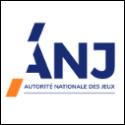Government Ushers in New Era of Responsible Online Gaming
Introduces strict guidelines for ensuring the safety of Digital Nagriks and accountability of the online gaming industry
Posted On: 20 APR 2023 7:43 PM by PIB Delhi
Betting and gambling activities are banned under various State laws, while few games of skill have been held to be constitutionally valid by the Supreme Court in various judgements. In this legal landscape, the online gaming industry in India has seen immense growth in the recent past. However, despite this existing legal landscape, various social and economic concerns have emerged from this industry over the past few years including:
(a) user harms in the nature of addiction-related concerns among children and adults, especially in terms of financial losses incurred by adult users due to such addiction;
(b) content-related concerns in terms of depiction of violent or inappropriate content, with the absence of concrete measures to prevent children from accessing such content or real money games;
(c) ads of offshore gambling and betting websites targeting Indian users;
(d) lack of safeguards to secure users’ money and money laundering-related concerns in the absence of any strict KYC mechanism.
To address such concerns effectively through legal means, the Ministry of Electronics and IT (MeitY) has introduced various checks and balances through relevant amendments to the Information Technology (Intermediary Guidelines and Digital Media Ethics Code) Rules, 2021 notified on April 06, 2023. The purpose of these amendments is to control the unabated and unwarranted negative impact of online gaming activities on users, especially children and other vulnerable sections of society.
The rules provide adequate controls to protect Indian Digital Nagriks from illegal gambling and betting websites and apps –
The rules cast an obligation on intermediaries, including social media platforms and app stores, to make reasonable efforts to not host, publish or share any online game that causes user harm or which has not been verified as a permissible online game by an online gaming self-regulatory body (SRB) designated by the Central Government.
The rules even disallow intermediaries to host or display any advertisement or surrogate advertisement or promotion of an online game that is not a permissible online game. This will help to address the growing menace of online ads of illegal betting and gambling operations targeting Indian users.
The rules will ensure that online games or sites that involve wagering will be banned completely including advertising or any time of presence. For this, the rules introduce the concept of a ‘permissible online game’. These rules will ultimately allow only such online real money games in India that are verified by SRBs as (a) not involving wagering on any outcome; (b) being compliant with the obligations under these rules; (c) the age under law at which an individual is competent to enter into a contract, and (d) the framework made by the SRB.
Additionally, in case of any other non-real money online game that has the potential to cause user harm or affect the security of India, the Central Government has the power to require such online games to be subject to the obligations under the rules as are applicable to online real money games. Thus, this empowers the Government to control any non-real money online game that could have a harmful impact on Digital Nagriks.
The rules address addiction-related concerns among children and adults through safeguards such as warning messages, monetary spending limits and time limits:
To be verified as a permissible online real money game, an SRB will ensure that any online game is tested against the framework published by the SRB on its website.
This framework will mandatorily include at least the following safeguards:
a. measures to ensure that such online real money game is not against the interests of sovereignty and integrity of India, security of the State, friendly relations with foreign States and public order;
b. safeguards against user harm including self-harm and psychological harm;
c. measures to safeguard children through parental controls and age-rating mechanisms, and
d. measures to safeguard users against the risk of gaming addiction, financial loss and fraud through measures such as repeated warning messages at higher frequency in long gaming sessions and provision to enable a user to exclude himself upon user-defined limits being reached for time or money spent.
Thus, the SRB’s framework will ensure that only such online games that have implemented the above safeguards are allowed to operate. This will also protect children and vulnerable sections of society from the negative effects of online games.
The rules will enhance public awareness about trusted online games that have been subject to a mandatory verification process:
Users can identify permissible online games through a demonstrable and visible mark of verification to be displayed mandatorily for all online games verified by SRBs.
The rules require SRBs to publish the following information on their website/mobile app:
a. Updated list of all permissible online real money games verified by it, with the applicant details, dates and period of validity of verification, reasons of verification and the details of the suspension or revocation of verification.
b. Updated list of present and former SRB members, date of acceptance as a member, their corporate or business-related identity number, and the details of suspension or revocation of membership.
The rules ensure transparency and full accountability of online gaming intermediaries enabling access to online real money games through mandatory KYC, discouraging providing credit financing options to users, and conformity with a requisite framework of SRB and other monetary protection measures:
Online gaming intermediaries enabling access to online real-money games will have to comply with the following requirements:
a. Disclose relevant information to users through terms of service and privacy policy:
i. all the online games offered, with the policy for withdrawal or refund of the deposit made, how the winnings will be decided and distributed, and any other payable charges;
ii. the KYC procedure followed before accepting any user deposit in cash or kind;
iii. measures are taken to protect user deposits; and
iv. the framework of the SRB of which the online gaming intermediary is a member
b. identify and verify the user identity before accepting any user deposit in cash or kind based on the identification procedure specified for entities regulated by the RBI
c. not giving credit or enabling financing by third parties to the users
The rules also enable an aggrieved user to have the option to appeal before the Grievance Appellate Committee (GAC) against the decision of the Grievance Officer of the online gaming intermediary concerned in case the above-specified disclosures under the rules are not conveyed to the users by such online gaming intermediary.
Other obligations for such online gaming intermediaries include—
a. Appoint a Chief Compliance Officer, nodal contact person and Resident Grievance Officer. This will ensure the accountability of such intermediaries to the law, law enforcement agencies and to users.
b. Publish monthly compliance reports on user complaints.
c. Publish its physical contact address in India on its website or mobile app. This will enable the government to trace the illegal activities performed by such intermediaries, which was otherwise difficult to do in the case of rogue foreign websites/apps.
d. Implement an appropriate grievance redressal mechanism.
The rules mandate that SRBs are held accountable for performing their functions responsibly:
The various requirements to be followed by SRBs as per the rules will ensure that SRBs function at arm’s length from their members. This is done through various provisions:
a. Approval of any entity to be designated as an SRB will be done by the Ministry as per the criteria given in the rules.
b. Board of Directors of the SRB need to consist of members free from conflict of interest and representing all relevant stakeholders and experts, including online games users, educationists, psychology or mental health experts, ICT experts, persons with child rights protection experience and a government-nominated individual having experience in relevant fields of public policy and administration. This will ensure that the diverse interests of all stakeholders are taken into account in the functioning of the SRB.
c. In case of failure of SRB to comply with any rule, the Ministry has the power to suspend or revoke the designation of such SRB.
The amendment Gazette notification vide G.S.R. 275(E) dated April 06, 2023 is available HERE.
The amended IT Rules, 2021 (updated on 6th April 2023) are available HERE.
SOURCE: Ministry of Electronics & IT. (Release ID: 1918383).
Tags: online gaming advertising, Ministry of Electronics & ITc, Betting and gambling activities, lack of safeguards






























